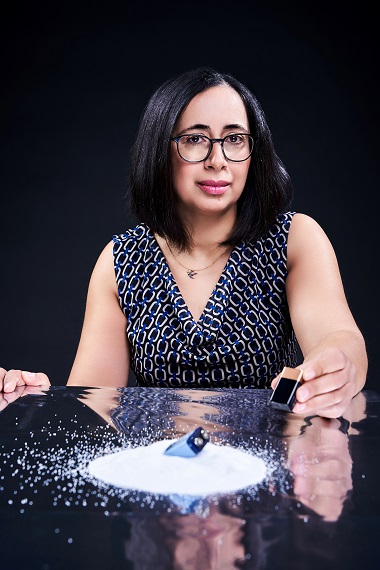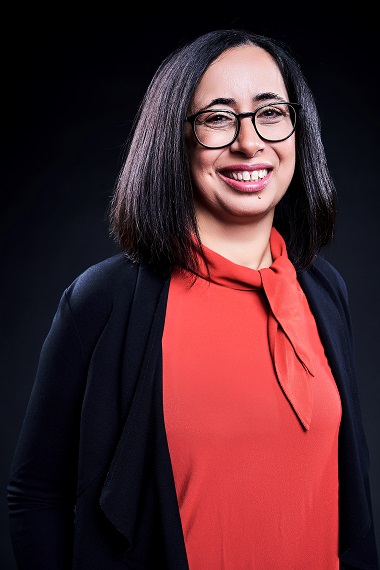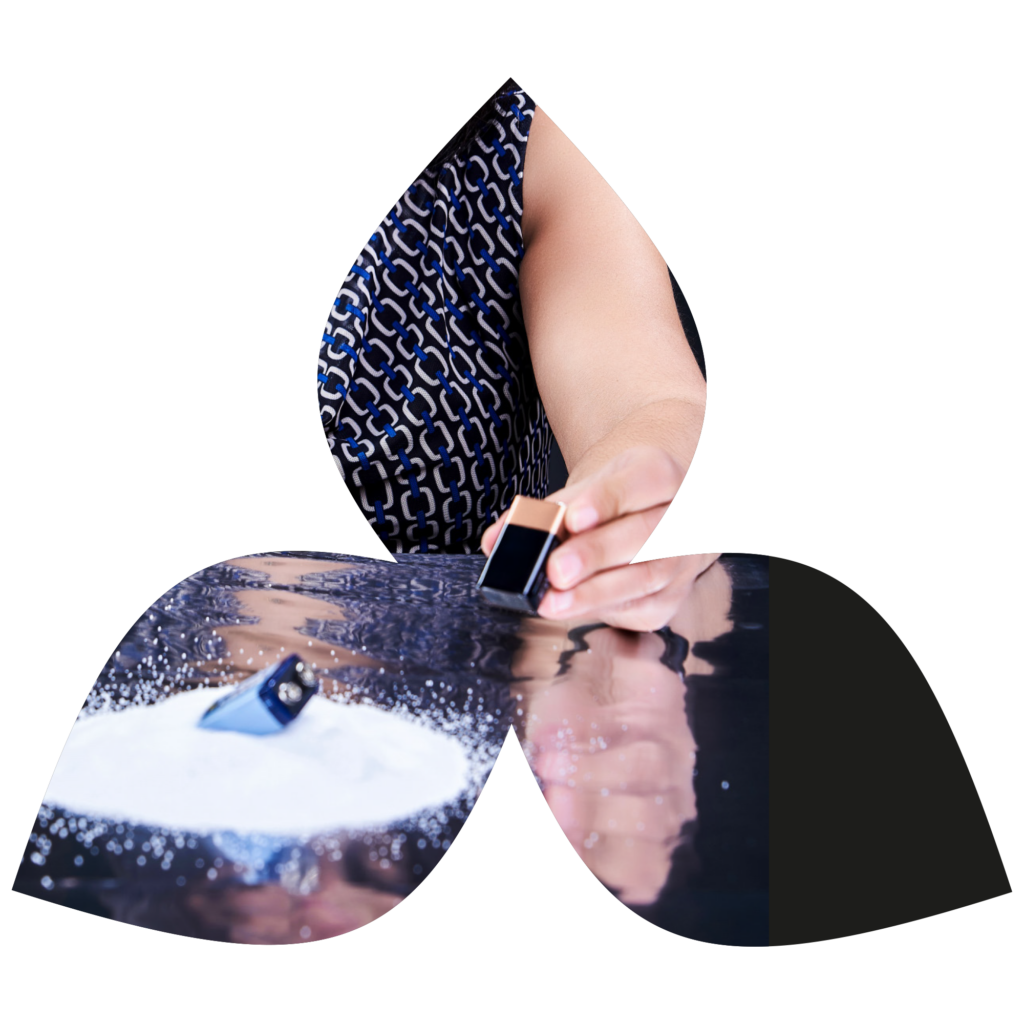
About the Author:
The portrait was written by Leandra Rudolph, who is studying Liberal Arts and Sciences with a major in Governance. As an aspiring ‘something – with – media – and – politics’, she has almost completed her studies and will soon be starting an internship at the Federal Press Office. This portrait has even recharged her batteries.


When passion is unleashed
“In science, you don’t work for money or fame: it has to be your hobby, and your work actually makes up a big part of your life,” says Sonia Dsoke. Anyone who has this enthusiasm for knowledge will be able to overcome many hurdles. She can tell, because Sonia Dsoke herself has come a long way with quite a few hurdles in her research career. This journey began in Camerino, Italy, where she studied chemistry and completed her PhD in electrochemistry. In Italy, it is actually usual to stay close to your family, explains Sonia Dsoke, and in the same sentence, she explains how she broke with this tradition to come to Germany. It was the only way she had the chance to continue her career in science. Leaving her home country brought with it a huge cultural change: she especially remembers her first winter in Ulm as gray and cold, but she grew accustomed to it and ended up living there for 7 years. Nevertheless, she is happy that she now lives in Freiburg, the sunniest city in Germany.
The language barrier posed another hurdle: “If you want to get a higher position in science here and build a career, you have to learn German,” explains Sonia Dsoke. So, she learned it. After working in Ulm and Karlsruhe, she finally accepted the call to Freiburg. She is now Professor for Electrochemical Energy Carriers and Storage Systems at the Institute for Sustainable Systems Engineering (INATECH) in the Faculty of Engineering. At INATECH, she is researching new materials for batteries: materials that are more abundant, e.g. sodium, and could replace well-established materials, such as lithium, and thus make cheaper and more sustainable batteries possible.
“To be a scientist, you have to be a social person,” says the chemist. This statement contradicts the image I often have of (especially natural) scientists. In my vision, they actually sit in the lab all day and do not talk to a soul. However, Sonia Dsoke describes the research process as follows: “In order to understand how the entire battery works, a dialog with experts of other fields is essential”. While she focused very much on her own research during her PhD phase, she is now an advocate of interdisciplinary working methods. The fact that she is now part of the Fraunhofer Institute has also encouraged her in this view. At the Fraunhofer Institute for Solar Energy Systems (ISE), Sonia Dsoke is leader of a research group. This complements her research into how batteries can be made safer, more sustainable and cheaper. Fraunhofer Institutes focus on application-oriented research. Thinking about the needs of clients changes one’s perspective and makes the big picture appear more important.
Why does she stay at university with such topics instead of going into the private sector? Sonia Dsoke explains that she worked briefly in a company in Italy and quickly realized that this was not the right thing for her. “In a university you have more freedom and can develop ideas, whereas in a company there is no provision for anyone to think about why something works or why something should be used.” Time is therefore another factor for her – only research allows for the development of new approaches, the direct benefits of which are not always immediately apparent, says Dsoke. In science, there is time and space for curiosity.
Of course, the university also offers the enriching opportunity to support young students in their development: “I don’t just want to pass on knowledge; I want to awaken curiosity in the students. Because only those who are curious go deep enough to discover new things.” Sonia also wants to use her position to be a role model for young women in science. She, therefore, also reports on the aspects of this career where she sees a need for improvement. Particularly in technical fields, there is a clear majority of men, both among lecturers and students. Sonia Dsoke is also aware of this inequality in her own environment: at INATECH, only 3 of 12 professorships are held by women. “This imbalance is sometimes accompanied by the feeling that, as a woman, you have to conform to a male mentality in order to prove yourself as competent and assertive.” However, women in management positions can also counteract such an atmosphere: The research group that Sonia Dsoke herself led had equal proportions of men and women. At the same time, young women also need to be introduced to technical fields at an early age, argues Sonia Dsoke. Already in school, the decision will be made whether girls perceive technology as a possible field of interest or not. Events such as the Girls’ Day (this year on 25.04.2024) are suitable for inspiring young girls and introducing them to the joy of science.
In Dsoke’s experience, another hurdle for women in science can be family planning. Schools still call the mother first if there are problems, or working mothers have to face the accusation of putting their children in nursery too early. This can be an additional mental burden, especially if a woman is also supervising (aka. caring for) a research group. Nevertheless, she hopes that women will not let themselves be deterred from pursuing an academic career. “It’s important to follow your dreams,” she would like to remind young, interested women. Was it worth pursuing her own dream, despite some obstacles and the cold weather? Sonia definitely thinks so. She started her own family here in Germany, found new traditions, and has been able to turn her passion for research into a successful career. Nevertheless, Sonia interjects with a laugh: in summer, she travels to Italy just to be on the safe side.







